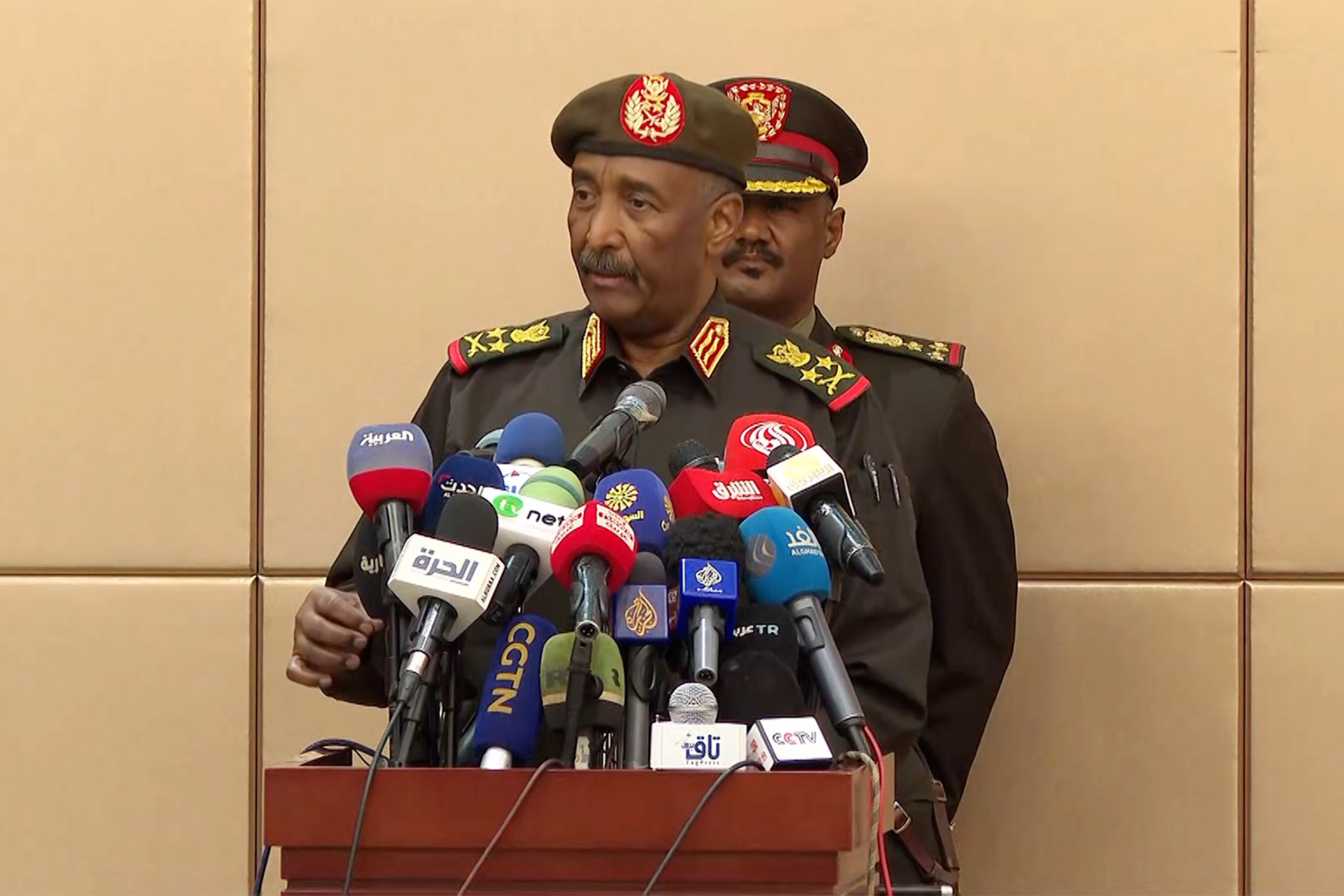The President of the Sovereignty Council in Sudan, General Abdel Fattah Al-Burhan, and his deputy, General Muhammad Hamdan Dagalo, known as "Hemedti", renewed this evening, Sunday, with the start of the final phase of the political process, the pledge to withdraw the army from politics and hand over the leadership of the next phase to civilians according to the agreement reached between the two military components. and civil.
At the start of the work of the final phase, whose consultations will last for 4 days, Al-Burhan said that the military establishment will not fail the Sudanese people, nor will it back down from its pledge to withdraw from the political scene and hand over the leadership of the political transition to civilians.
He added that the military will push the rest of the political and civil forces to join the political track, saying that they are looking forward to a civilian government that fulfills the aspirations of the Sudanese people.
For his part, General Mohamed Hamdan Dagalo, Vice-President of the Sovereignty Council, renewed the Council's commitment to ending the status quo to form a civilian government, reforming military apparatus, and establishing a national army far from politics.
Hamidti said that the framework agreement reached last month between the military and civilians is an important breakthrough in the political crisis, adding that the political process is a purely Sudanese process that reflects the Sudanese.
For her part, the representative of the civil forces that signed the framework agreement said that the agreement distances the military establishment from politics and stresses justice, and called on the rest of the civilian components to join the political process.
In turn, the representative of the European Union called on the Sudanese parties to reach as soon as possible a civilian government that would lead to the organization of elections.
The Forces for Freedom and Change (the Democratic Bloc) had said that they had stopped indirect meetings with the Freedom and Change Group - the Central Council, which signed the framework agreement.
After that, the official spokesman for the Democratic Bloc, Mubarak Ardol, said that the framework agreement in its current form is rejected.
The military and civilian components signed the framework agreement last month (European News Agency)
Major issues
Al-Jazeera correspondent, Al-Taher Al-Mardi, reported that the meetings, which began this evening, Sunday, in the presence of Al-Burhan and Hamidti, discuss the main issues, referring to the participation of representatives of the European Union, the Troika (the United States, Britain and Norway), and ambassadors of Arab and Western countries.
He added that these meetings establish a final agreement for the next phase of the political process in Sudan.
Academics, traditional leaders and religious sheikhs attend this stage of the dialogue.
On December 5, 2022, the military component signed a framework agreement with civilians led by the Forces for the Declaration of Freedom and Change, other political forces (the original Democratic Unionist Party, the People’s Congress), civil society organizations, and armed movements under the banner of the Revolutionary Front, to start a transitional phase that will continue. two years.
Roadmaps
And the tripartite mechanism - which is in charge of arranging the dialogue in the country - said in a statement that the consultations will focus on 5 issues over a period of 4 days to study a road map to revive the process of dismantling what is known as the empowerment of the Bashir regime.
According to the tripartite mechanism, composed of the African Union, the Inter-Governmental Authority on Development (IGAD) and the United Nations mission, the upcoming working groups and conferences are expected to produce roadmaps on each of the issues that will be considered in the final political agreement.
The tripartite and quadruple mechanisms consisting of the United States, Britain, Saudi Arabia and the UAE participated in the framework agreement consultations.
The final agreement includes 5 issues: justice and transitional justice, security and military reform, review and evaluation of the peace agreement, the dismantling of the June 30, 1989 regime, and the issue of eastern Sudan.
Among the most prominent provisions of the agreement is the army's distancing from politics, the adoption of a transitional period of two years starting from the date of the appointment of a prime minister, the launch of a comprehensive process for drafting the constitution under the supervision of the Constitution Drafting Commission, and the organization of a comprehensive electoral process at the end of the transitional period.
The agreement between the Sudanese parties aims to resolve a prolonged crisis since October 25, 2021, when the head of the Sovereignty Council, Abdel Fattah al-Burhan, imposed exceptional measures, including the dissolution of the Sovereignty Council and the transitional ministers, the arrest of ministers and politicians, the declaration of a state of emergency, and the dismissal of governors (governors).

